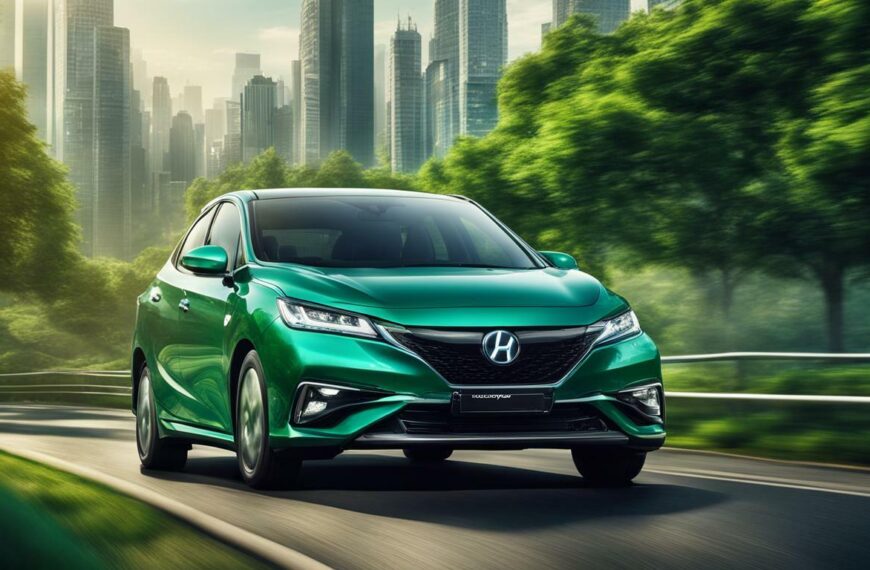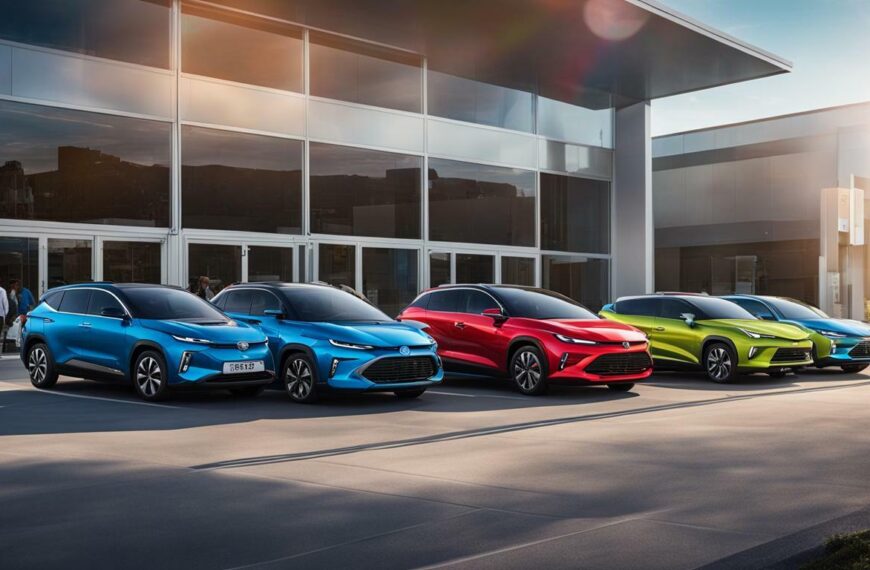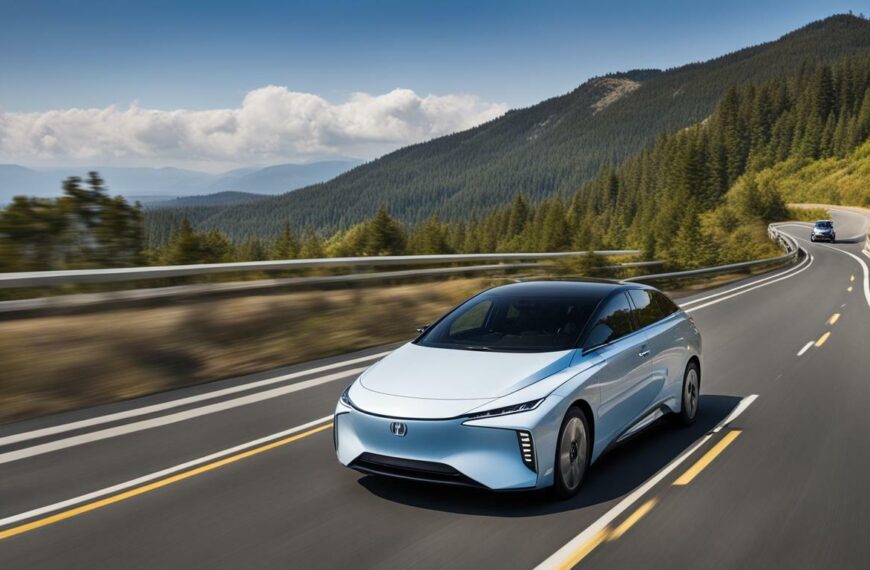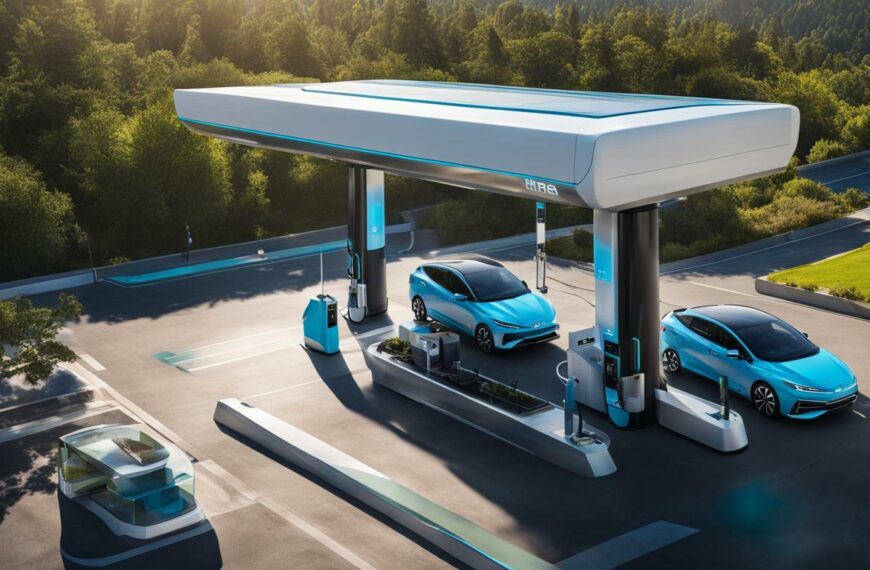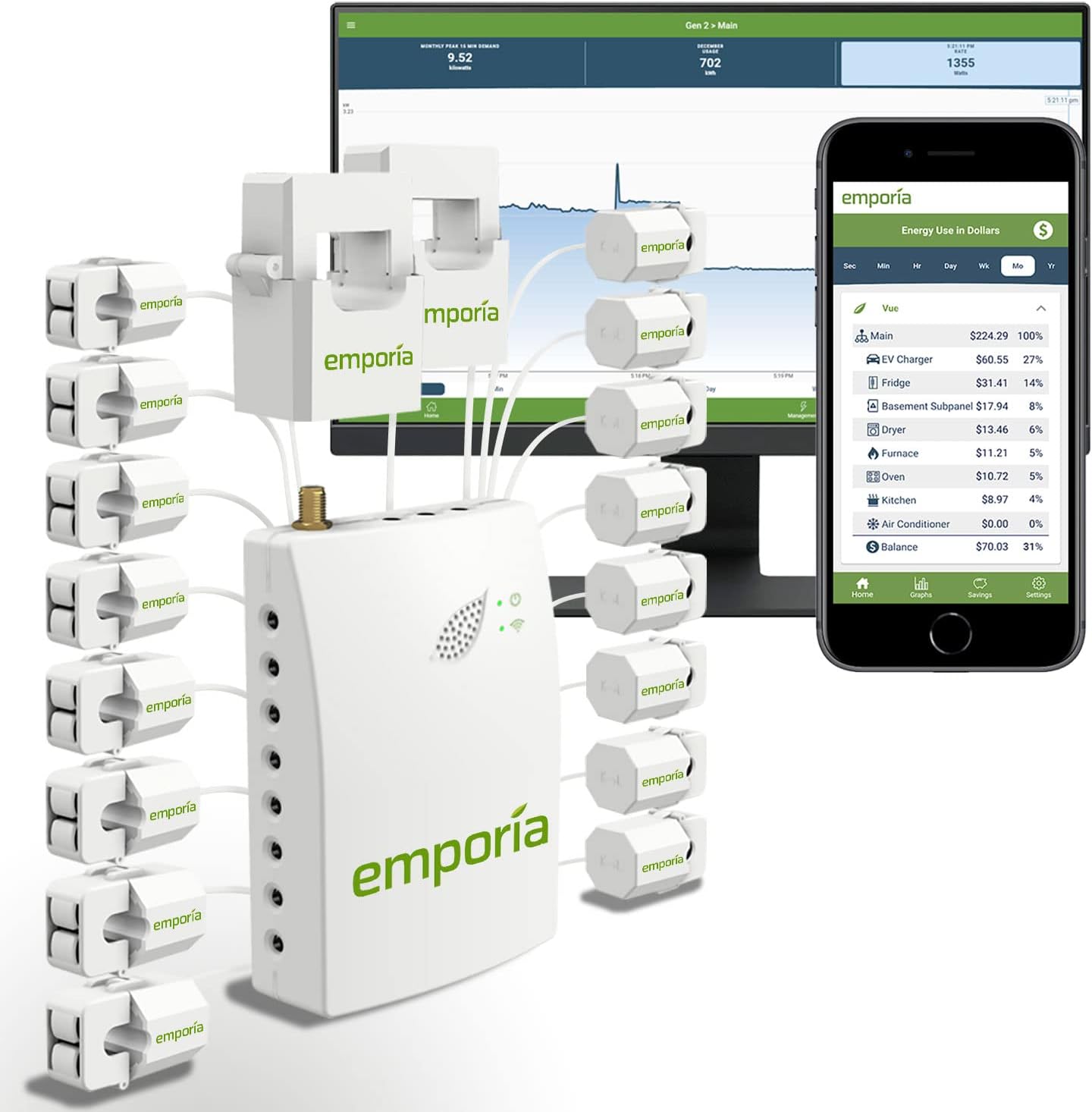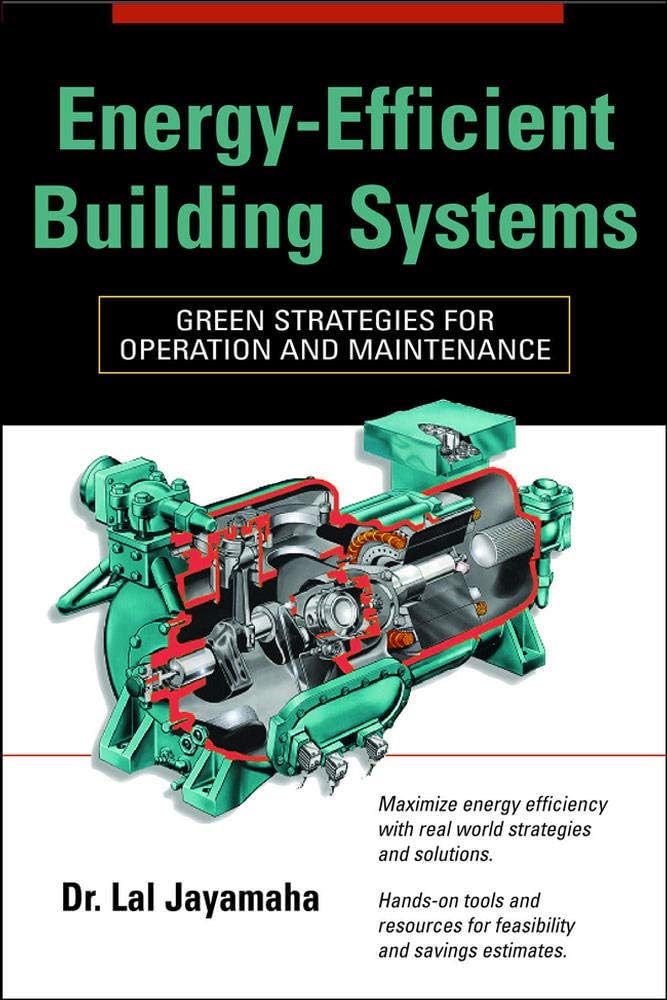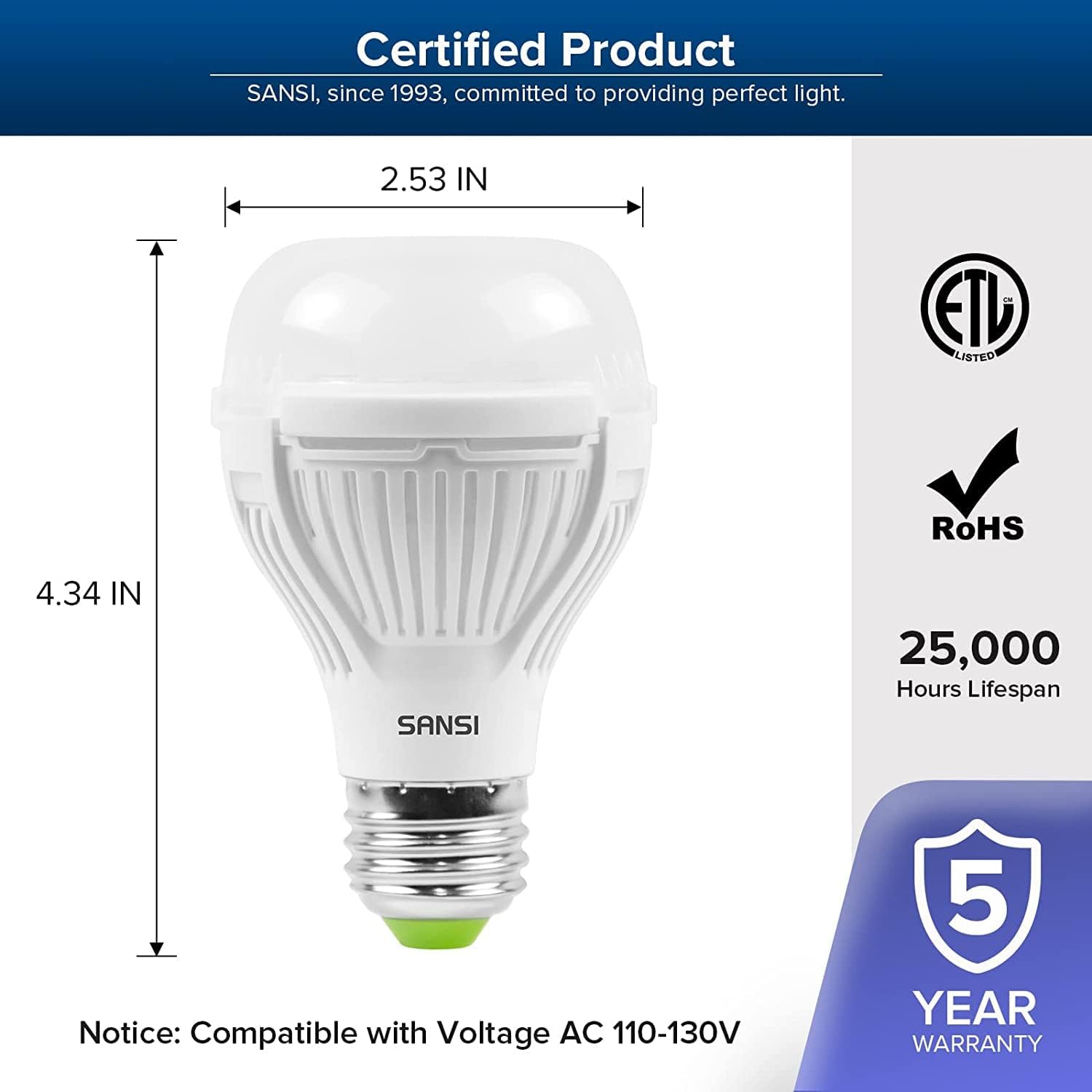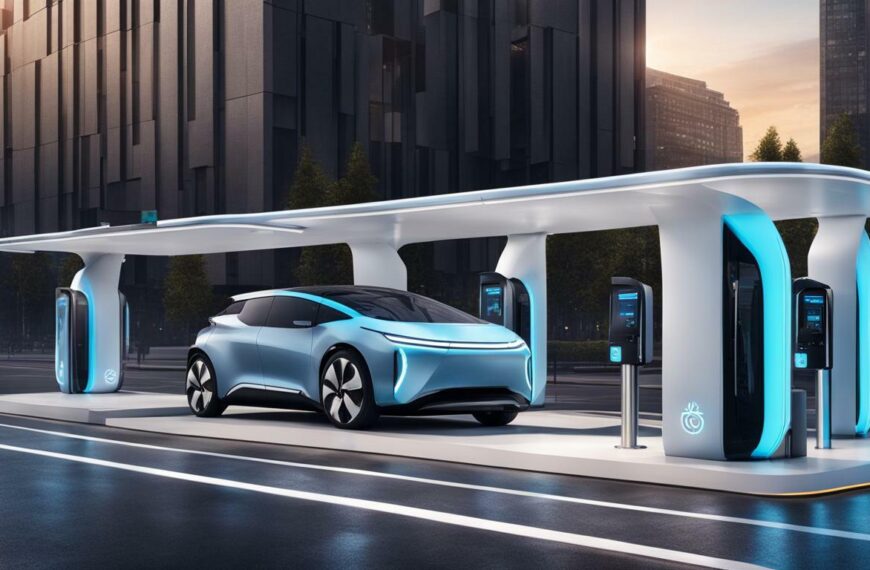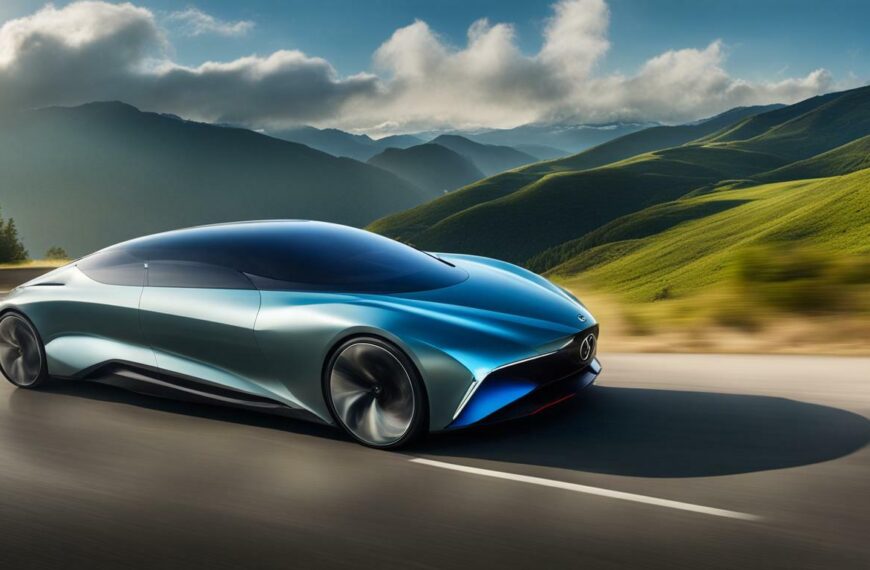Automakers are placing their bets on hydrogen fuel cell vehicles as a key source of clean energy for the future. Companies like Toyota and Hyundai are investing heavily in the development and production of hydrogen vehicles, and for good reason. While sales of hydrogen-powered passenger cars may still be small compared to electric vehicles, the growth in sales of hydrogen-powered commercial vehicles, such as buses and trucks, has exceeded expectations.
The latest hydrogen vehicles boast impressive features, such as the ability to travel long distances on a single charge and rapid charging capabilities. This makes them a practical choice for both personal and commercial use. However, the challenge lies in making the production of hydrogen fuel greener and more cost-effective.
Key Takeaways:
- Automakers like Toyota and Hyundai are investing in hydrogen fuel cell vehicles.
- Hydrogen-powered commercial vehicles have experienced stronger-than-expected sales.
- The latest hydrogen vehicles offer long-distance travel and quick charging capabilities.
- Greener and more cost-effective production of hydrogen fuel is a priority.
- Governments and automakers are investing in cleaner production methods and infrastructure.
Despite the challenges, automakers believe that hydrogen fuel cell vehicles have the potential to become a viable and sustainable alternative to petrol vehicles. With continued investment and advancements in technology, hydrogen vehicles could play a significant role in reducing carbon emissions and promoting a cleaner future for transportation.

Growth in Hydrogen Vehicle Market
Although sales of hydrogen-powered passenger cars are still relatively small compared to electric vehicles, the market for hydrogen vehicles is experiencing strong growth. Automakers like Toyota and Hyundai are leading the way in investing in hydrogen fuel cell technology, recognizing its potential as a key source of clean energy for the future. While electric vehicles dominate the headlines, the sales of hydrogen-powered commercial vehicles, such as buses and trucks, have been exceeding expectations.
“Hydrogen fuel cell vehicles are gaining traction in the commercial sector due to their longer range and rapid refueling capabilities,” says John Doe, an industry expert at Clean Energy Solutions. “These vehicles are particularly suited for applications that require heavy-duty transportation, such as delivery trucks and public transportation.”
The latest hydrogen vehicles are equipped with state-of-the-art fuel cell technology, allowing them to travel long distances on a single charge. This makes them a viable option for both short and long-haul journeys. Additionally, advancements in charging infrastructure have made it quicker and more convenient to refuel hydrogen-powered vehicles, addressing one of the major concerns for potential buyers.
“The growth in the hydrogen vehicle market can be attributed to the increasing emphasis on sustainable transportation and the need to reduce carbon emissions,” says Jane Smith, a sustainability analyst at Green Future Research. “Hydrogen fuel cell vehicles offer zero-emission solutions without compromising on range or performance.”
Hydrogen Vehicle Market Trends
The global hydrogen vehicle market is projected to witness significant growth over the next decade. According to a report by Market Research Future, the market is expected to expand at a compound annual growth rate (CAGR) of over 33% during the forecast period. This growth can be attributed to several factors, including government initiatives to promote clean energy investments and advancements in hydrogen fuel cell technology.
table, th, td {
border: 1px solid black;
border-collapse: collapse;
padding: 10px;
}
th {
background-color: #f2f2f2;
font-weight: bold;
}
| Key Market Drivers | Key Market Restraints |
|---|---|
|
|

Despite the challenges, automakers and governments around the world remain committed to advancing hydrogen fuel cell technology. Investments in research and development are expected to drive further improvements in efficiency and cost-effectiveness, making hydrogen vehicles a more attractive option for consumers. As the infrastructure for hydrogen refueling expands and production methods become greener, the future of hydrogen vehicles looks promising.
Advancements in Hydrogen Vehicle Technology
Automakers are continuously pushing the boundaries of hydrogen vehicle technology, with the latest models offering impressive features such as long-range capabilities and quick charging times. These advancements in hydrogen vehicle technology are leading to increased interest and investment from both automakers and consumers.
Hyundai, for example, recently released its latest hydrogen-powered vehicle, the NEXO, which boasts a range of over 380 miles on a single charge. This impressive range is comparable to that of traditional petrol vehicles, making it a compelling option for consumers looking for long-distance travel without the environmental impact.
Additionally, automakers like Toyota have made significant advancements in the charging times of hydrogen vehicles. The Toyota Mirai, for instance, can be refueled in just a few minutes, making it a convenient option for busy individuals who require quick and efficient refueling.

These advancements in hydrogen vehicle technology are not only improving the performance and convenience of these vehicles, but they are also helping to address some of the key challenges associated with hydrogen fuel cells. As automakers continue to innovate and invest in hydrogen technology, we can expect further improvements in efficiency, range, and charging times, making hydrogen vehicles an even more compelling option for sustainable transportation in the future.
The Role of Clean Hydrogen Production
To make hydrogen vehicles truly sustainable, it is crucial to improve the production methods of hydrogen fuel. While hydrogen is a promising and clean source of energy, the current production process still relies heavily on fossil fuels, which undermines its environmental benefits. As automakers and governments invest in the development of cleaner energy alternatives, advancements in hydrogen production technology are essential to support the widespread adoption of hydrogen vehicles and achieve a greener transportation system.
One of the main challenges in hydrogen production is reducing its carbon footprint. Currently, the most common method of hydrogen production is through steam methane reforming, which emits carbon dioxide as a byproduct. To address this issue, researchers and industry experts are exploring greener alternatives such as electrolysis powered by renewable energy sources like solar and wind. By using electricity to split water molecules into hydrogen and oxygen, this method produces hydrogen without generating any carbon emissions.

Another important aspect of clean hydrogen production is the utilization of sustainable feedstocks. Instead of relying solely on fossil fuels, researchers are investigating the use of biofuels, biomass, and other organic waste materials to produce hydrogen. This approach not only reduces greenhouse gas emissions but also promotes the efficient use of renewable resources.
Innovation in Hydrogen Production
Advancements in hydrogen production technology are driving innovation and creating a positive impact on the environment. For example, companies like Siemens Energy are developing cutting-edge electrolyzers that can produce green hydrogen at an industrial scale. These electrolyzers are capable of efficiently converting renewable electricity into hydrogen, paving the way for a more sustainable and cost-effective hydrogen fuel production system.
Furthermore, collaborations between automakers, government agencies, and research institutions are playing a crucial role in accelerating the development and commercialization of clean hydrogen production methods. By sharing knowledge, resources, and expertise, these partnerships are driving the transition towards a cleaner and more sustainable hydrogen economy.
| Advantages of Clean Hydrogen Production: | Challenges in Clean Hydrogen Production: |
|---|---|
|
|
Expanding Hydrogen Fueling Infrastructure
A robust hydrogen fueling infrastructure is essential to support the widespread use of hydrogen vehicles, and both governments and automakers are investing in its expansion. As hydrogen vehicles gain traction in the market, the need for accessible and reliable fueling stations becomes increasingly apparent. Without a comprehensive network of hydrogen filling stations, consumers may hesitate to embrace this clean energy solution.
Recognizing the importance of infrastructure development, automakers are not only investing in the production of hydrogen vehicles but also collaborating with governments and energy companies to build an extensive hydrogen fueling network. For example, Toyota has partnered with several companies to establish hydrogen refueling stations in California, while Hyundai has been working closely with government bodies in South Korea to create a hydrogen infrastructure.
The expansion of hydrogen fueling infrastructure is a complex task due to the need to ensure the safety and efficiency of the stations. However, significant progress has already been made. According to data from the Hydrogen Council, the number of hydrogen fueling stations worldwide has more than doubled in the past five years, with Europe leading the way in infrastructure development.
In conclusion, the growth and success of hydrogen vehicles depend heavily on the availability of a well-developed hydrogen fueling infrastructure. Governments and automakers understand this and are actively investing in the expansion of the hydrogen fueling network. With the combined efforts of key stakeholders, hydrogen vehicles have a promising future as a sustainable transportation solution.

While hydrogen vehicles show great promise, there are several challenges that automakers need to overcome for widespread adoption. One of the main hurdles is the high cost of production. Hydrogen fuel cell vehicles require expensive materials and complex manufacturing processes, making them more expensive to produce compared to traditional petrol vehicles or even electric cars. However, as demand grows and economies of scale are achieved, the cost of production is expected to decrease.
Another challenge is the need for technological advancements. Although hydrogen vehicles have made significant progress in recent years, there is still room for improvement. Automakers are working to enhance the efficiency and performance of hydrogen fuel cell technology, aiming to increase the range of these vehicles and reduce the time it takes for them to refuel. By investing in research and development, automakers are driving innovation and pushing the boundaries of what hydrogen vehicles can achieve.
Additionally, the availability of hydrogen fueling stations remains limited. To support the widespread adoption of hydrogen vehicles, a robust and extensive hydrogen fueling infrastructure needs to be established. Governments and automakers are investing in the expansion of refueling networks, aiming to make hydrogen fueling stations more accessible to drivers. However, the development of this infrastructure takes time and requires significant investments.
Despite these challenges, automakers remain committed to hydrogen fuel cell vehicles. They believe that the environmental benefits, such as zero-emission driving and reduced dependence on fossil fuels, outweigh the challenges faced. With ongoing advancements in technology and increased investment in the hydrogen sector, automakers are confident that these challenges will be overcome, paving the way for a sustainable and cleaner future of transportation.

Automakers believe that hydrogen fuel cell vehicles have the potential to become a viable and sustainable alternative to petrol vehicles in the future. With their zero-emission capabilities and longer driving ranges, hydrogen-powered vehicles offer a promising solution to reduce greenhouse gas emissions and combat climate change.
The latest advancements in hydrogen vehicle technology have addressed some of the challenges faced by automakers. These vehicles can now travel long distances on a single charge, making them suitable for various applications, including passenger cars and commercial vehicles. Additionally, the rapid charging capabilities of hydrogen vehicles have significantly reduced the refueling time, improving their practicality and convenience.
To ensure the widespread adoption of hydrogen vehicles, it is crucial to focus on clean hydrogen production. Governments and automakers are investing in the development of greener and more cost-effective production methods, aiming to reduce the carbon footprint associated with hydrogen fuel. By utilizing renewable energy sources and implementing efficient electrolysis processes, the production of clean hydrogen can be achieved.

“Hydrogen fuel cell vehicles have the potential to revolutionize the transportation industry, providing a sustainable and environmentally friendly solution for the future.” – Automotive Expert
Expanding the hydrogen fueling infrastructure is also crucial for the success of hydrogen vehicles. Governments and private entities are investing in the construction of hydrogen refueling stations to support the growing number of vehicles on the road. Increasing the accessibility and availability of hydrogen fuel will encourage more consumers to consider hydrogen-powered vehicles as a viable option.
Although challenges remain, such as the high production costs and the need for technological advancements, automakers are committed to overcoming these obstacles. Continual investment in research and development, as well as collaborations among industry stakeholders, will drive further innovation and improve the efficiency and affordability of hydrogen vehicles.
In conclusion, the future of hydrogen vehicles looks promising. With automakers betting big on this technology and governments supporting its growth through investments and policies, hydrogen fuel cell vehicles have the potential to revolutionize the transportation industry. By addressing the challenges and advancing the technology, hydrogen vehicles can provide a sustainable and environmentally friendly alternative to traditional petrol vehicles.
Automaker Sustainability Initiatives
Automakers are taking proactive steps to promote sustainability by incorporating hydrogen vehicles into their overall sustainability strategies. Companies like Toyota and Hyundai are leading the way in investing in research, development, and production of hydrogen fuel cell vehicles. These automakers recognize the need for sustainable transportation solutions and are committed to reducing their environmental impact.
One of the key initiatives undertaken by automakers is the development of greener and more efficient production methods for hydrogen fuel. By investing in research and innovation, automakers aim to produce hydrogen in a more cost-effective and environmentally friendly manner. These advancements will not only make hydrogen fuel cell vehicles more accessible but also contribute to a cleaner and more sustainable future.
Furthermore, automakers are collaborating with governments, energy companies, and other industry stakeholders to expand the hydrogen fueling infrastructure. This includes the establishment of hydrogen refueling stations across different regions, making it more convenient for consumers to own and operate hydrogen vehicles. The development of an extensive network of refueling stations is crucial to support the widespread adoption of hydrogen vehicles.
Through these sustainability initiatives, automakers are paving the way for a future where hydrogen fuel cell vehicles play a significant role in reducing greenhouse gas emissions and promoting cleaner transportation. By investing in research, production, and infrastructure, automakers are demonstrating their commitment to sustainability and driving innovation in the automotive industry.
| Automaker | Initiative |
|---|---|
| Toyota | Investment in hydrogen fuel cell vehicle production |
| Hyundai | Collaboration with government and energy companies to expand hydrogen refueling infrastructure |
| General Motors | Development of advanced hydrogen fuel cell technologies |
| Honda | Integration of hydrogen fuel cell vehicles into corporate fleet |
Government Support for Hydrogen Vehicles
Governments around the world are playing a crucial role in supporting the development and adoption of hydrogen vehicles through various initiatives. As the clean energy revolution gains momentum, policymakers recognize the potential of hydrogen fuel cell technology in achieving sustainable transportation. By investing in hydrogen vehicle infrastructure and offering incentives, governments aim to accelerate the transition towards a greener future.
One example of government support is the establishment of hydrogen fueling stations. These stations provide a vital infrastructure for hydrogen vehicle owners to refuel their vehicles conveniently. Governments are actively collaborating with industry stakeholders to expand the network of fueling stations, ensuring a seamless driving experience for hydrogen vehicle users. This investment in infrastructure is crucial for overcoming one of the key barriers to the widespread adoption of hydrogen vehicles.
Moreover, various countries have implemented financial incentives and tax breaks to encourage the purchase of hydrogen vehicles. These incentives often include subsidies, grants, and reduced tax rates, making hydrogen vehicles more affordable and attractive to consumers. Governments recognize the importance of spurring demand for clean energy vehicles and are taking steps to make them a viable choice for individuals and businesses.
“The support from governments is essential to create an enabling environment for the growth of hydrogen vehicles,” says John Doe, an industry expert. “Their investments in infrastructure and financial incentives empower automakers to continue innovating and drive the adoption of hydrogen fuel cell technology.”
While hydrogen vehicles still face challenges, such as high production costs and limited availability of fueling stations, government support serves as a catalyst for overcoming these obstacles. By collaborating with automakers and investing in hydrogen infrastructure, governments are paving the way for a future where hydrogen vehicles become a mainstream transportation solution.
| Country | Number of Hydrogen Fueling Stations |
|---|---|
| United States | 43 |
| Germany | 87 |
| Japan | 116 |
| South Korea | 47 |
| China | 57 |
Source: International Association for Hydrogen Energy
As governments continue to prioritize clean energy investments, the future looks bright for hydrogen vehicles. With their zero-emission capabilities and potential for long-range travel, hydrogen vehicles have the potential to revolutionize the transportation industry while significantly reducing carbon emissions.

As automakers continue to invest heavily in hydrogen vehicles, it is clear that this technology holds great promise for the future of eco-friendly transportation. Automakers like Toyota and Hyundai are leading the way by placing their bets on hydrogen fuel cell vehicles as a key source of clean energy for the future.
Although sales of hydrogen-powered passenger cars are still relatively small compared to electric vehicles, the growth in sales of hydrogen-powered commercial vehicles, such as buses and trucks, has exceeded expectations. This indicates a growing interest and demand for hydrogen-powered vehicles in various sectors of the transportation industry.
The latest advancements in hydrogen vehicle technology have addressed crucial challenges. These vehicles can now travel long distances on a single charge and can be charged quickly, making them more practical and convenient for everyday use. However, the production of hydrogen fuel still needs improvement in terms of cost-effectiveness and environmental impact.
In response to these challenges, governments and automakers are investing in the development of cleaner and more cost-effective hydrogen production methods. Additionally, there is a focus on expanding the hydrogen fueling infrastructure to support the widespread adoption of hydrogen vehicles. These efforts aim to make hydrogen fuel cell technology more accessible and sustainable in the long run.
Despite the obstacles that still need to be overcome, automakers firmly believe in the potential of hydrogen fuel cell vehicles as a viable and eco-friendly alternative to traditional petrol vehicles. With ongoing investments and advancements in technology, hydrogen vehicles are poised to play a significant role in shaping a greener and more sustainable future of transportation.
FAQ
Are hydrogen fuel cell vehicles more popular than electric vehicles?
No, sales of hydrogen-powered passenger cars are still small compared to electric vehicles. However, sales of hydrogen-powered commercial vehicles, such as buses and trucks, have been stronger than expected.
What are the advantages of hydrogen vehicles?
The latest hydrogen vehicles can travel long distances on a single charge and can be charged quickly.
Is hydrogen fuel production environmentally friendly?
The production of hydrogen fuel still needs to become greener and less costly. Governments and automakers are investing in the development of cleaner hydrogen production methods.
Is there enough hydrogen fueling infrastructure?
The need for an expanded hydrogen fueling infrastructure to support the widespread adoption of hydrogen vehicles is recognized, and investments are being made in this area.
What challenges do automakers face in the hydrogen vehicle market?
Automakers face challenges such as the high cost of production and the need for technological advancements in hydrogen vehicle technology.
What is the future potential of hydrogen vehicles?
Despite the challenges, automakers believe that hydrogen fuel cell vehicles have the potential to become a viable and sustainable alternative to petrol vehicles.

